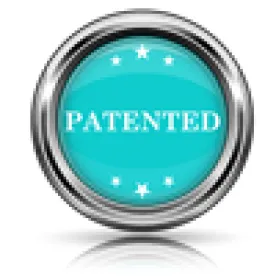The U.S. Court of Appeals for the Tenth Circuit reversed an order sanctioning an attorney under Federal Rule of Civil Procedure 11, holding that the district court abused its discretion in finding the attorney’s tactical moves were unwarranted. Predator Int’l, Inc. v. Gamo Outdoor USA, Inc., Case No. 14-1354 (10th Cir., July 14, 2015) (Hartz, J.).
Predator International sued Gamo Outdoor in federal district court for patent infringement and other claims. During the course of the litigation, Predator’s sole ownership of the patent (and, therefore standing to sue) was disputed. Instead of joining the purported co-owner of the patent in the federal suit, Predator dismissed the patent infringement claim without prejudice and commenced state-court litigation over the ownership of the patent. Gamo, however, acquired the purported co-owner’s interest in the patent and expanded the scope of the state-court litigation. Rather than litigate with Gamo in two different courts over related issues, Predator moved to supplement its complaint to add the patent-ownership dispute and re-add the patent infringement claim. The district court denied the motion to supplement but went further, sanctioning Predator’s attorney under Rule 11. The attorney appealed the sanction to the 10th Circuit.
As an initial matter, the 10th Circuit concluded that it possessed appellate jurisdiction over the case. Normally, cases involving patents are appealed to the U.S. Court of Appeals for the Federal Circuit. Although Predator’s suit initially contained a patent infringement claim, at the time of the sanction order, it did not. Because appellate jurisdiction is evaluated based on the conditions when it is invoked, i.e., when the party files its notice of appeal, 10th Tenth Circuit concluded that no basis existed for Predator to appeal the sanctions order to the Federal Circuit.
Turning to the merits of the Rule 11 sanctions, the 10th Circuit first noted that sanctions can be imposed because of malice or bad faith or because of actions unwarranted by the facts or law. Because the lower court found no evidence of malice or bad faith, the appeal turned on whether Predator’s attorney’s tactical choices had some support. The 10th Circuit examined the three bases for the district court’s sanction order and rejected each one, finding in each case that Predator’s attorney’s actions had at least some support.
First, the 10th Circuit reviewed the district court’s conclusion that Predator’s attorney engaged in impermissible forum shopping. As the 10th Circuit explained, forum shopping itself is not sanctionable. What is sanctionable, however, is attempting to litigate in a forum for which no jurisdictional basis exists. That was not the case with Predator. In fact, Predator’s motion to supplement sought to re-add to the federal case the patent infringement claim, which could only be brought in federal court, and no bar existed to pursuing the patent ownership claim in state and federal court at the same time. The fact that the federal court might abstain from hearing the patent ownership claim did make Predator’s attempt to litigate it in federal court frivolous.
Second, the 10th Circuit dismissed the district court’s conclusion that Predator’s delay in moving to supplement warranted the sanction. Taking a practical view, the court noted that Predator could have filed a separate lawsuit against Gamo and moved to consolidate it with the pending suit. Accordingly, it seemed odd to sanction Predator’s attorney for choosing the more efficient path of simply adding the claims to the pending lawsuit. Moreover, the 10th Circuit found nothing unreasonable about when Predator moved to supplement its complaint, which occurred after Gamo made itself a participant in and sought to complicate the state court proceeding. When it “became clear that Predator’s rival in the state case would be Gamo, which was already the opposing party in the federal case,” the efficiency of the state-court proceeding evaporated.
Finally, the 10th Circuit rejected the district court’s conclusion that Predator needed new evidence of standing to add the patent infringement claim. As the court noted, Predator needed only to sufficiently allege standing. Indeed, Predator could have litigated the patent-ownership and patent infringement claims in the same federal lawsuit from the outset. The fact that recovery on the latter is contingent on prevailing in the former is irrelevant. Accordingly, Predator needed nothing additional to do what it could have done initially.




 />i
/>i

